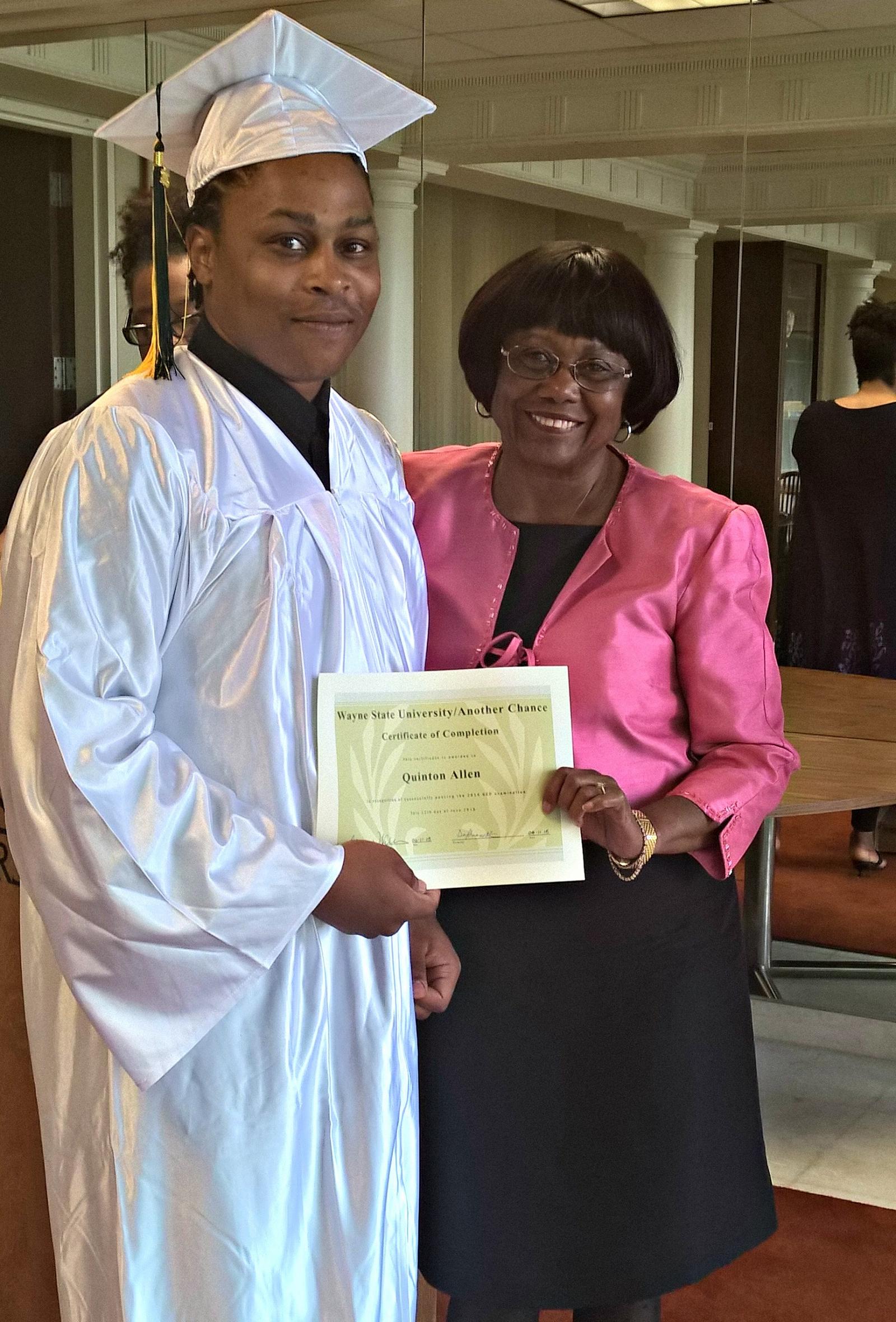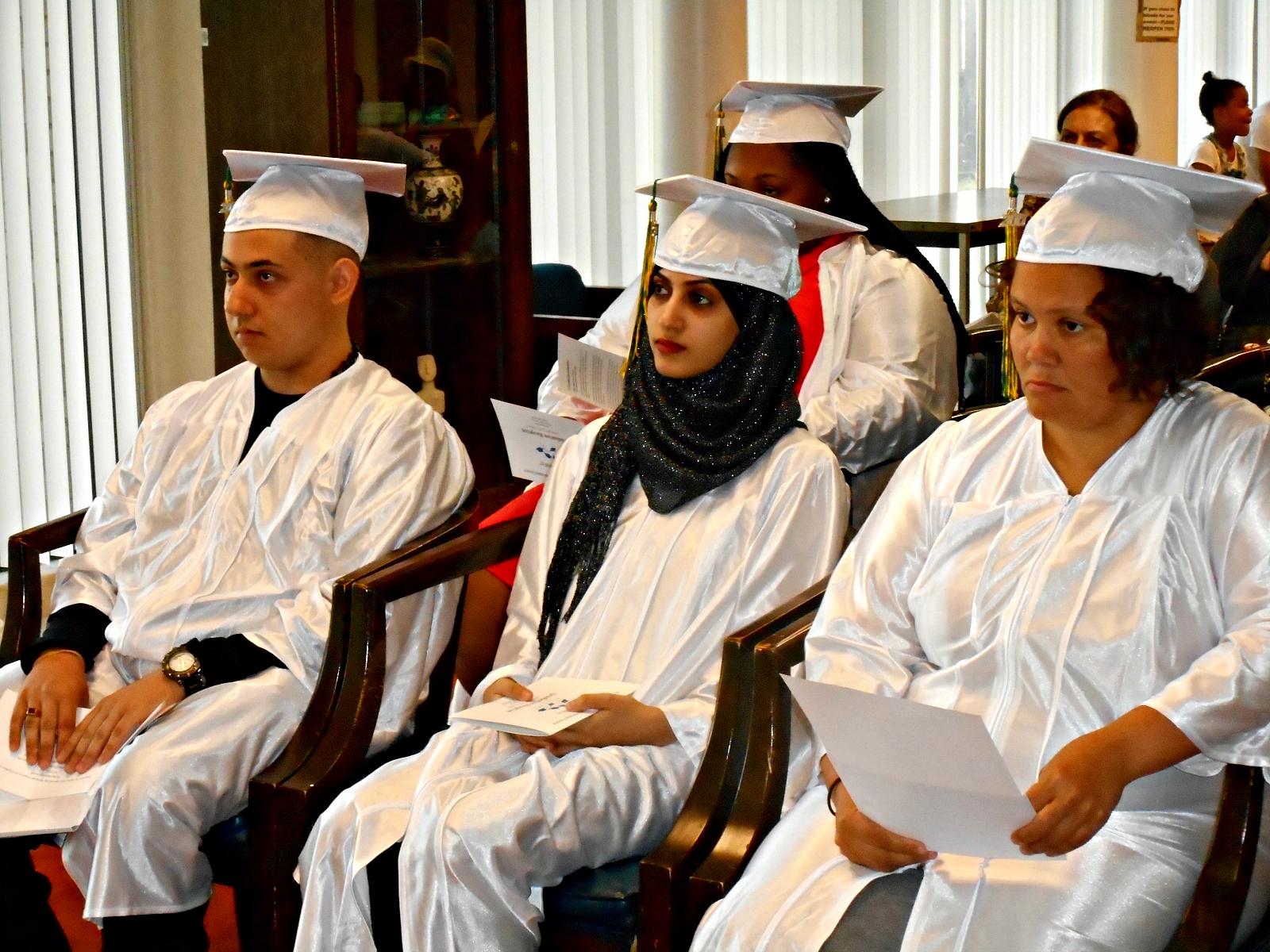Wayne State University’s Department of African American Studies is helping Detroit residents earn their GEDs, improve their literacy skills and be prepared to meet the demands of an ever-changing workforce through WSU Another Chance, an integrated adult education program.
 Funded by the State of Michigan, the program recently received a one-year, $112,000 grant from the Talent Investment Agency — a division of the State of Michigan dedicated to supporting business growth and a diverse skilled workforce — to provide adult education under the Workforce Innovation and Opportunity Act. The grant will help fund instructional expenses, including supplies, additional teachers and career development staff.
Funded by the State of Michigan, the program recently received a one-year, $112,000 grant from the Talent Investment Agency — a division of the State of Michigan dedicated to supporting business growth and a diverse skilled workforce — to provide adult education under the Workforce Innovation and Opportunity Act. The grant will help fund instructional expenses, including supplies, additional teachers and career development staff.
WSU Another Chance offers free classes to people 18 and older who do not have a high school diploma or GED. The program helps participants prepare for their GED and assists them as they transition into post-secondary institutions or the workforce.
Daphne Ntiri, a professor in the Department of African American Studies and a leading researcher and advocate for adult education and literacy, launched the program in 2009 and is its chair. She served for three years as a consultant on adult education and literacy to the United Nations in France, Senegal and Somalia before launching her long-term literacy initiatives at WSU.
Since its introduction, WSU Another Chance has enrolled approximately 1,600 students, 189 of whom have earned their GED to date.
“Literacy and education have the power to transform an individual’s life, and making the decision to earn that GED can be redemptive and empowering,” Ntiri said. “There’s no denying that Detroit is coming back — so now more than ever, we’ve got to empower our community to play an active role in that comeback.”
The program offers semester-long classes at locations in and around Detroit, including WSU’s main campus, the Detroit Hispanic Development Corporation, the Detroit and Dearborn locations of ACCESS, the New Prospect Baptist Church and the Detroit Literacy Coalition. Class sizes are small and focus primarily on the reading, writing and math skills necessary to pass the GED exam. Students also learn interview techniques, financial literacy, workplace preparedness and other skills aimed for success beyond the classroom. The program culminates in a graduation ceremony on WSU’s main campus.
WSU Another Chance works with a variety of community outreach programs and partners to connect with students, including the Detroit Hispanic Development Corporation, ACCESS, the Urban League of Detroit’s Mature Workers program, SER Metro-Detroit, the Detroit Public Library and the Detroit Literacy Coalition. Additional referral agencies include the Michigan Department of Corrections, the First Congregational Church of Detroit, , the Third Judicial Circuit of Michigan, The Children’s Center, Spectrum Human Services and Matrix Head Start.
“A GED is an opportunity that opens so many doors, and many of our students think that they’ve missed out on that opportunity because they didn’t graduate from high school,” said Alesia Williams, program coordinator. “We work to show them that those doors — and so many others — are absolutely always open.”
WSU Another Chance connects students to a vast network of community support programs and resources, including everything from social workers and childcare providers to job placement agencies. Volunteers from WSU’s School of Social Work help maintain the program’s resource directory. WSU Another Chance also connects students with WSU’s TRiO Educational Opportunity Center, which provides free academic, vocational, career and financial aid information for those interested in pursuing a college degree or vocational training.
 “As nontraditional students, these individuals are often facing an abundance of barriers and challenges — they’re speaking English as a second or third language, they’re supporting themselves and a family, they’re facing precarious housing situations,” said Williams. “Our students are some of the most tenacious and committed people around, and we want to help them succeed however possible.”
“As nontraditional students, these individuals are often facing an abundance of barriers and challenges — they’re speaking English as a second or third language, they’re supporting themselves and a family, they’re facing precarious housing situations,” said Williams. “Our students are some of the most tenacious and committed people around, and we want to help them succeed however possible.”
The program is supported by the department’s faculty, some of whom have served as tutors. Program support comes from grants, various foundations and individual donors.
“WSU Another Chance was launched in the spirit of seeing a need and taking action to solve it,” said Ollie Johnson, chair and associate professor in the Department of African American Studies. “Our department is committed to both academic excellence and social responsibility, and this program blends those commitments to have a concrete, positive impact in our community.”
Donations to the program are welcome. For details, write to wsuanotherchance@gmail.com or call 313-577-9079.
